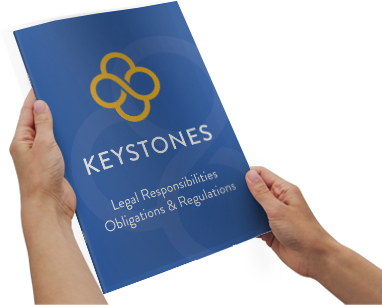Introduction
The Tenants Rights Bill, also known as the Renters Reform Bill, is a significant change in the UK’s private rented sector. It was introduced to Parliament on May 17, 2023, with the goal of improving tenant security and rights while also addressing issues faced by landlords. The proposed changes aim to create a fairer relationship between tenants and landlords, ensuring that the quality of housing is improved for everyone.
This article explores five important aspects of the bill that may directly affect you:
- Abolition of Section 21 Evictions
- Introduction of Rolling Tenancies
- Increased Notice Periods for Rent Increases
- Pet Ownership Rights
- Establishment of an Ombudsman Scheme
Understanding these key points will assist you in navigating the changing world of rental agreements and better preparing for potential shifts in your housing situation.
1. Abolition of Section 21 Evictions
Section 21 evictions, commonly known as “no-fault” evictions, have played a significant role in the private rented sector in the UK. As we discussed in our recent article about Section 21 Abolishment, this provision allowed landlords to evict tenants without providing any specific reason, often after a fixed-term tenancy had ended. Historically, this has provided landlords with a straightforward method to regain possession of their properties, sometimes leading to abrupt relocations for tenants.
The abolition of this eviction process under the Tenants Reform Bill is a major change aimed at improving tenant security and stability. Tenants can now expect greater assurance in their living arrangements, creating an environment where they feel more settled and less worried about unexpected displacement. By requiring landlords to provide valid reasons for eviction, tenants gain stronger legal protection and the opportunity to resolve any issues before facing eviction.
Concerns for Landlords
From a landlord’s perspective, there may be concerns about potential limitations on managing their property investments effectively. The abolition could lead to difficulties in dealing with problematic tenants, as the process for eviction becomes more complicated and possibly longer. Landlords might be anxious about increased risks related to property damage or unpaid rent if they believe that their control over tenant occupancy is diminished.
Finding a Balance
It is important to find a balance between these viewpoints as both parties navigate this legislative change. While tenant protection receives a significant boost, it is crucial to consider how landlords can adapt effectively while still having fair access to their properties when legitimate issues arise. The abolition of Section 21 is expected to greatly reshape the rental landscape, aiming for harmony between tenant rights and landlord interests.
2. Introduction of Rolling Tenancies
Rolling tenancies represent a significant shift from the traditional assured shorthold tenancies typically found in the UK rental market. Unlike fixed-term agreements, which specify a set duration, rolling tenancies operate on a month-to-month basis without a predetermined end date. This change simplifies tenancy agreements, allowing for ongoing tenancy until either party chooses to terminate with appropriate notice.
Benefits of Rolling Tenancies
- Increased Flexibility: For tenants, rolling tenancies offer the freedom to move without waiting for a lease term to expire. Conversely, landlords benefit from the ability to swiftly adjust terms in response to changing market conditions.
- Reduced Turnover Costs: The continuity of rolling tenancies minimizes vacancy periods and re-letting expenses. Landlords can maintain stable occupancy rates, which translates to consistent rental income.
- Tenant Retention: Tenants who feel secure in their living arrangements may choose to stay longer, reducing tenant turnover and fostering better landlord-tenant relationships.
Potential Drawbacks
Despite these advantages, some potential risks need consideration:
- Uncertainty for Landlords: The absence of a fixed-term lease might lead to unpredictability regarding tenant turnover, potentially complicating financial planning for landlords.
- Challenges in Long-Term Planning: Both parties may find it challenging to plan long-term when tenancy duration is uncertain. This could affect decisions related to property investments or personal life changes.
- Legal Complexities: Navigating legal responsibilities under rolling tenancies might require both tenants and landlords to stay informed about their rights and obligations continuously.
By embracing rolling tenancies, both tenants and landlords can enjoy flexibility and reduced costs while navigating new challenges that come with this innovative approach.
3. Increased Notice Periods for Rent Increases
The Tenants Rights Bill introduces significant changes to how rent increases are communicated and implemented, affecting both landlords and tenants. Landlord obligations now include providing at least two months’ advance notice before any rent hike can take effect. This requirement is an effort to create a more transparent rental market, ensuring that tenants have ample time to adjust their financial plans accordingly.
Benefits for Tenants
Longer notice periods empower tenants by allowing them to better plan their budgets and avoid unexpected financial burdens. With the opportunity to assess their options, tenants can make informed decisions about whether to negotiate the increase, seek alternative housing, or adjust their spending habits to accommodate the new rent amount.
Challenges for Landlords
For landlords, compliance with these notice period requirements may present challenges. Adhering to the stipulated timelines requires meticulous record-keeping and proactive communication with tenants. Additionally, inflexible rental policies may necessitate revisions to align with the new regulations. Some landlords might argue that extended notice periods could delay needed revenue adjustments in response to market conditions or property maintenance costs.
Aiming for Balance
Despite these potential hurdles, the emphasis on clear communication aims to foster a more balanced landlord-tenant relationship. By setting standard protocols for rent increases, the Renters Rights Bill seeks to minimise disputes and enhance stability within the rental sector.
Rent increases are an inevitable aspect of the housing market, yet through structured processes like those outlined in this bill, both parties can work towards a more predictable and amicable arrangement. This reform reflects a broader initiative aimed at improving tenant security while ensuring landlords retain their ability to manage properties effectively.
4. Pet Ownership Rights
The Renters Rights Bill introduces significant changes to pet ownership rights in rental properties, a topic of increasing interest among tenants. Traditionally, landlords have had the discretion to refuse pets, often without providing a reason. The proposed changes aim to shift this paradigm by allowing tenants the right to request permission to keep pets in their homes.
Tenant Requests and Landlord Responses
The process for requesting pet ownership involves tenants submitting a formal request to their landlord. Under the new legislation, landlords cannot unreasonably withhold consent. They are required to provide a response within a specified timeframe, ensuring clarity and timeliness. While landlords can impose certain conditions or restrictions—such as requiring pet insurance or specifying permissible pet types—their refusal must be justifiable.
Impact on Tenant Satisfaction and Housing Availability
Granting tenants the ability to have pets is expected to significantly enhance tenant satisfaction. Pets are seen as part of the family by many, contributing positively to mental health and well-being. This change could make properties more attractive to potential renters who are pet owners.
However, there are considerations regarding housing availability. Some landlords may be hesitant, fearing potential property damage or disturbances. Yet, with proper conditions set and insurances in place, these concerns can be mitigated.
The introduction of pet ownership rights reflects an evolving rental market that values tenant lifestyle needs more comprehensively. This shift could lead to a broader acceptance of pets in rental homes, aligning with modern living standards while maintaining fair responsibilities for both parties involved.
5. Establishment of an Ombudsman Scheme
The government-approved ombudsman scheme is set to be a cornerstone of the Renters Rights Bill, addressing longstanding issues in tenant-landlord relationships. Its primary purpose is to provide an impartial platform for resolving disputes that may arise between tenants and landlords. This initiative ensures that all private landlords are required to join the scheme, creating a universal standard for complaint handling within the rental sector.
An independent body overseeing these cases brings several benefits:
- Ensuring Fair Outcomes: By having an impartial entity involved, both parties can expect decisions that are unbiased and based on evidence rather than emotions or personal interests.
- Deterring Unscrupulous Behaviour: Knowing that disputes will be independently investigated acts as a deterrent against potential misconduct by either landlords or tenants, fostering a more ethical rental market.
- Streamlined Resolution Process: The ombudsman scheme is designed to simplify the resolution process, making it less stressful for tenants to raise complaints and have them addressed adequately.
This framework not only empowers tenants by giving them a voice but also helps maintain trust and transparency between both parties. Landlords benefit from clear guidelines on how disputes should be managed, reducing the risk of legal entanglements. As the Renters Rights Bill continues its journey through Parliament, the establishment of this ombudsman scheme represents a significant step towards enhancing fairness and accountability in the private rental sector.
Conclusion
The Renters Rights Bill marks a crucial change in the future of renting in the UK, promising significant implications for both tenants and landlords. As the bill aims to create a more balanced landlord-tenant relationship, it’s crucial for you to stay informed about its ongoing developments. This engagement allows you to provide feedback or contribute to discussions around its implementation.
- Stay Updated: Keep track of news and updates regarding the bill as it progresses through Parliament.
- Get Involved: Look out for public consultations or forums where you can voice your opinions.
- Understand Your Rights: Familiarise yourself with how these changes may affect your rights and responsibilities, whether you’re a tenant or a landlord.
With the potential to redefine rental dynamics, your awareness and involvement can help shape a fairer rental market for all parties involved.
More from the Keystones learning hub
Keep updated with what's going on in your local area. Our latest news provides up-to-date information on everything regarding the local property market, for everyone including homebuyers, sellers, tenants, and landlords.
The Landlord Ombudsman & Renters Rights Bill – We Explain it All

3 June, 2025
It’s a great time to keep your UK Residential Buy to Let

20 May, 2025
Will the Romford Mosque increase property prices?

13 May, 2025

Come and see us face to face
Keystones are Open 6 days a week. Pop in, have a Tea or Coffee as we always have people on hand to help you.
Keystones Property
-
Keystones Property Collier Row
13 Clockhouse Lane, Collier Row, Romford, Essex, RM5 3PH, United Kingdom -
Email: [email protected]
-
Telephone: 01708 909 100





